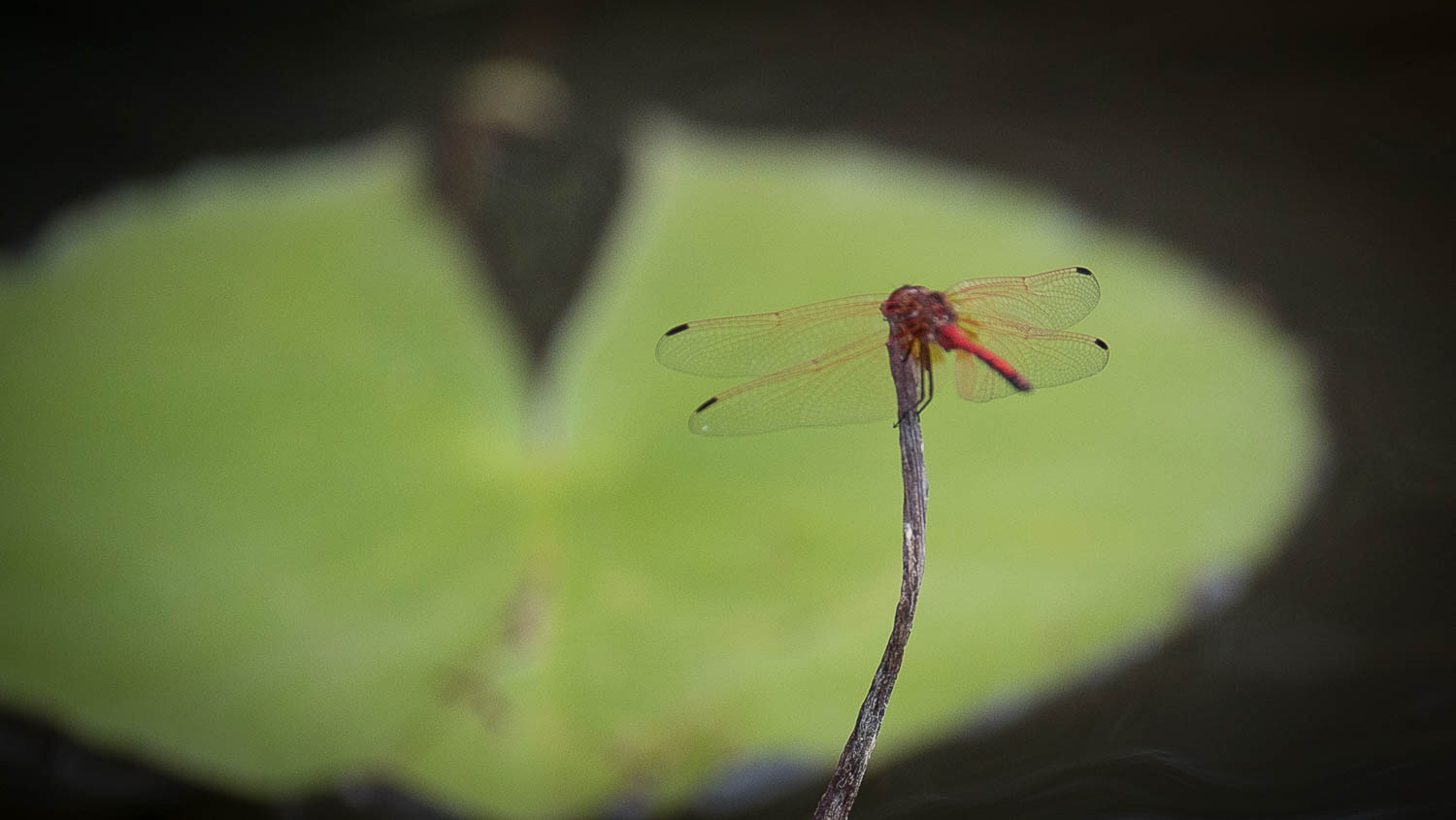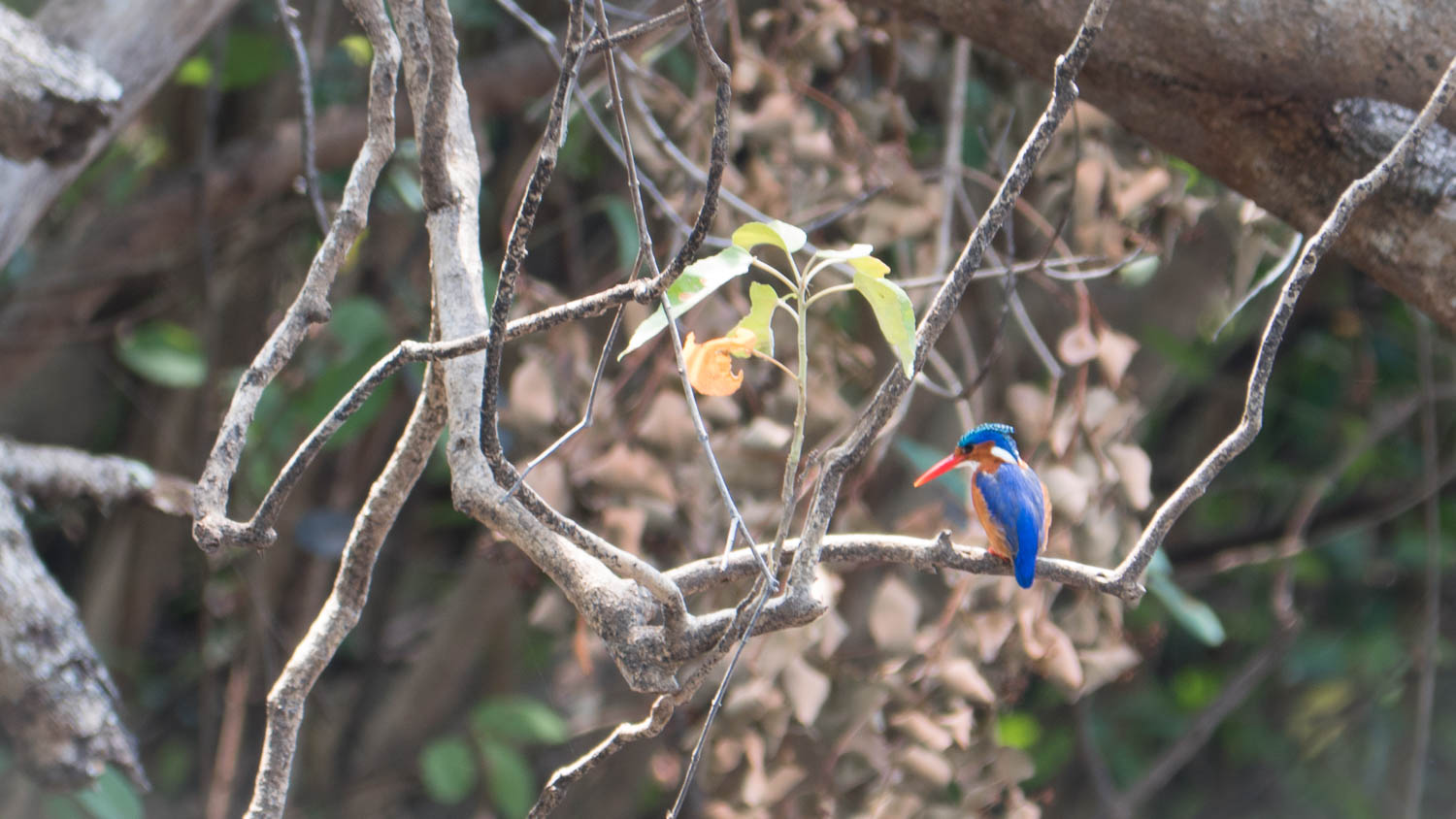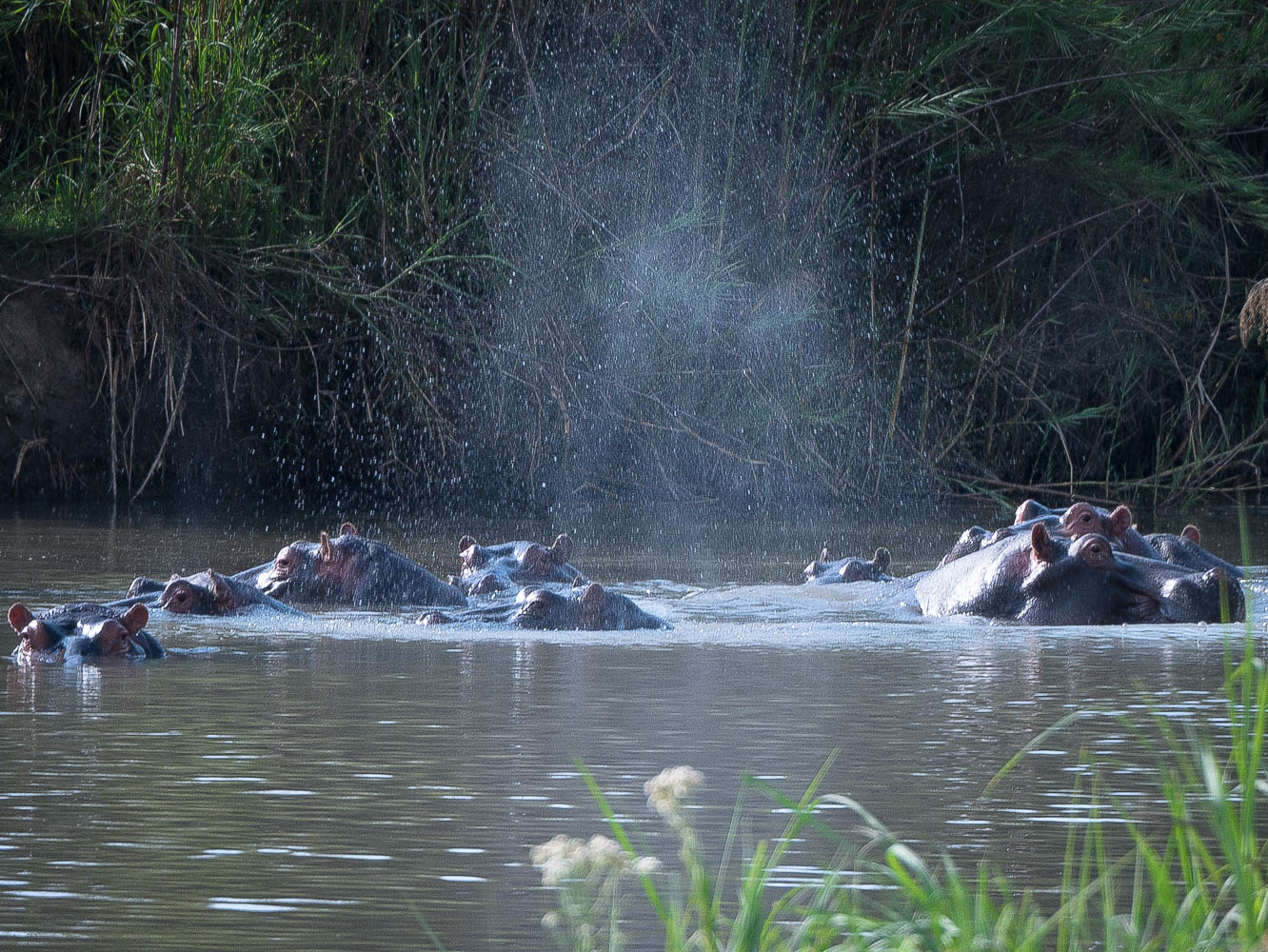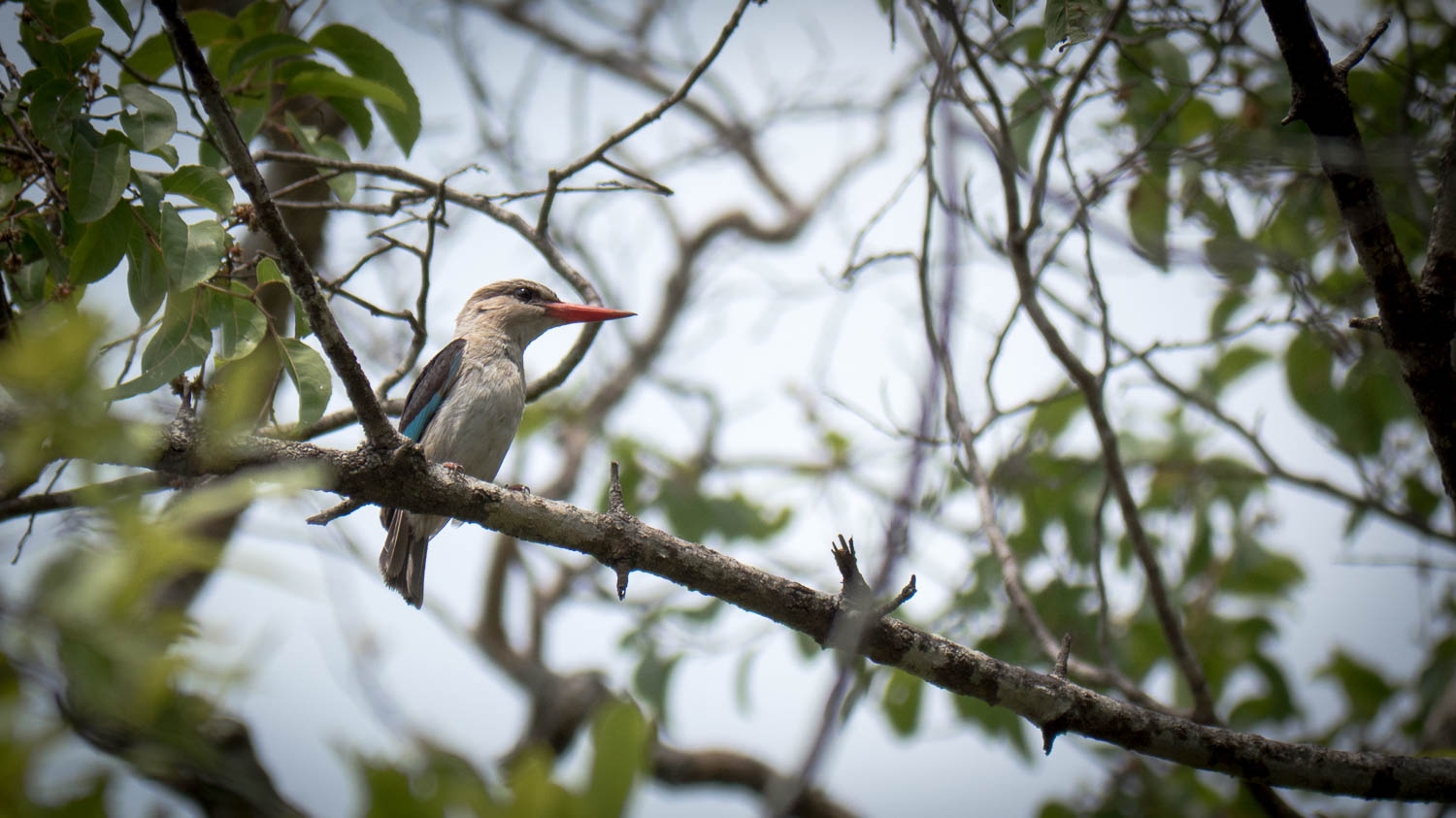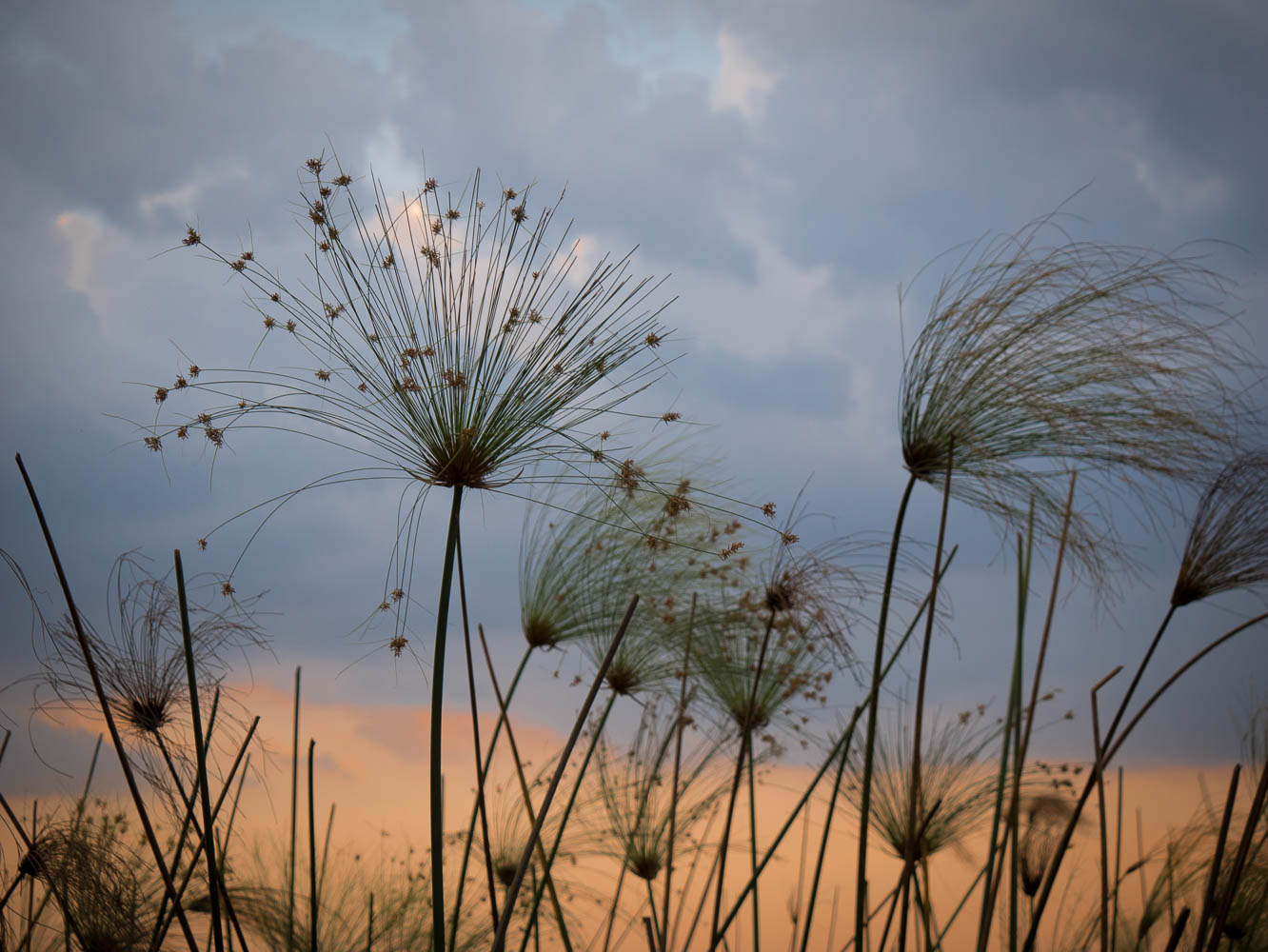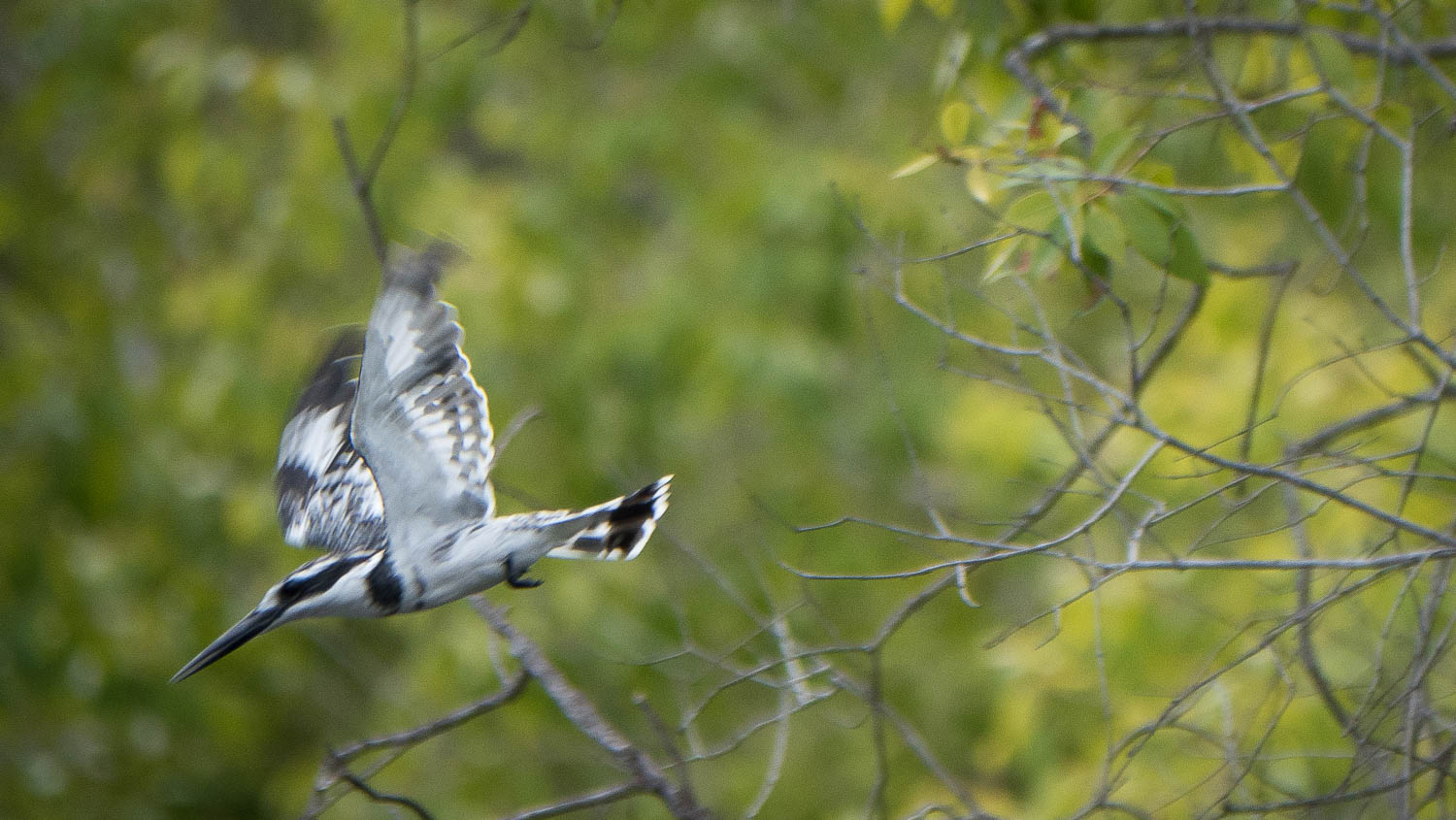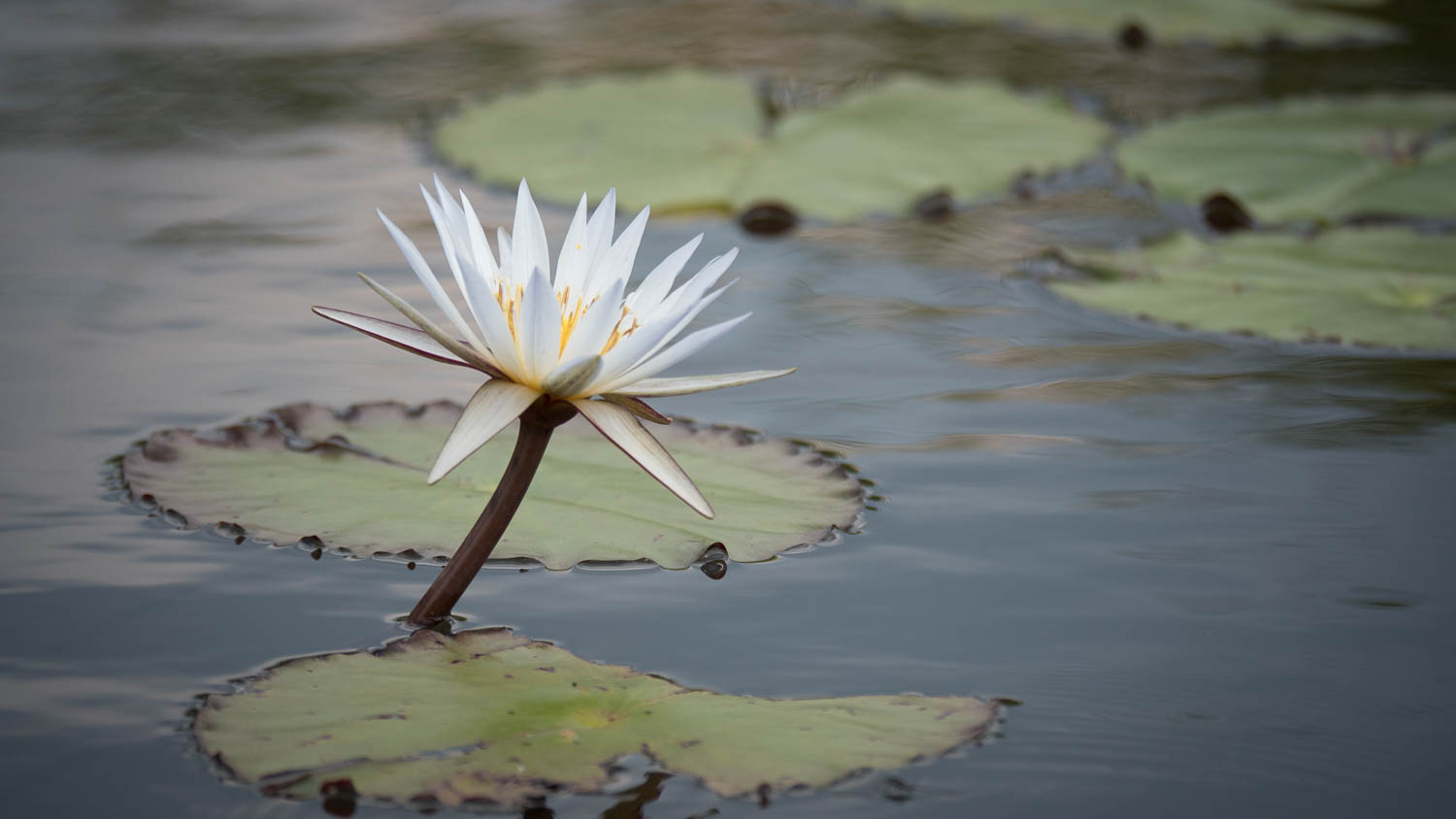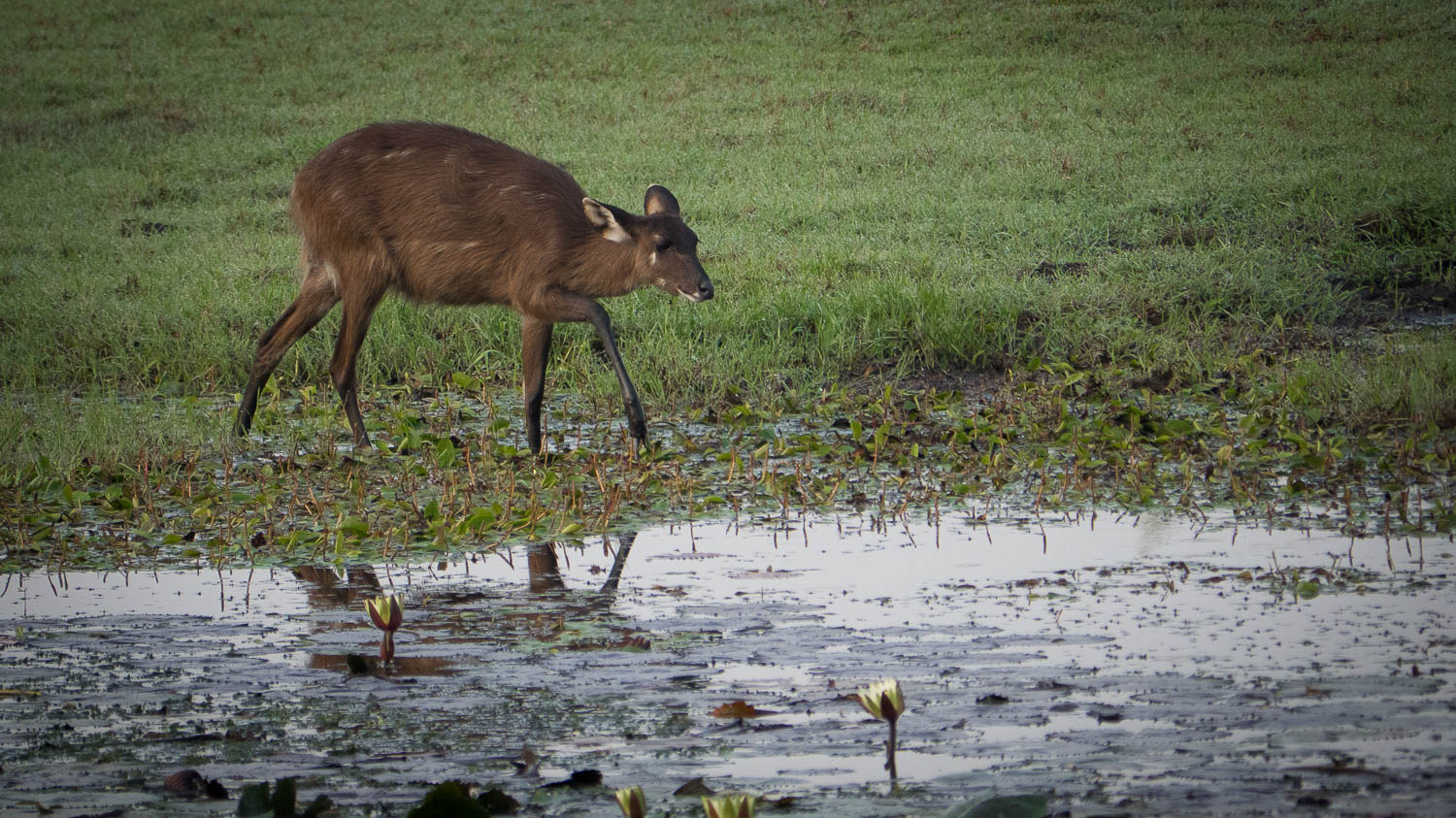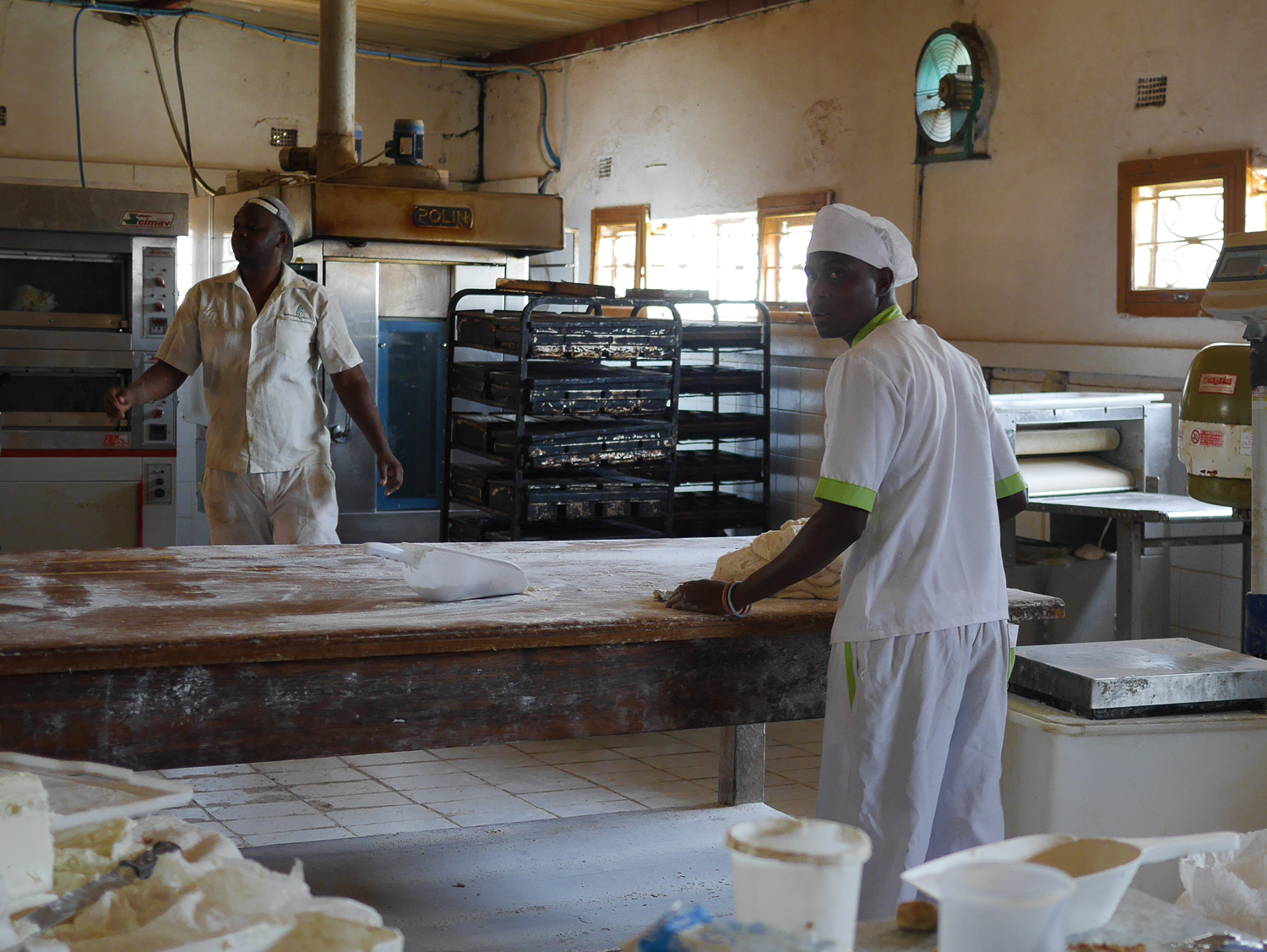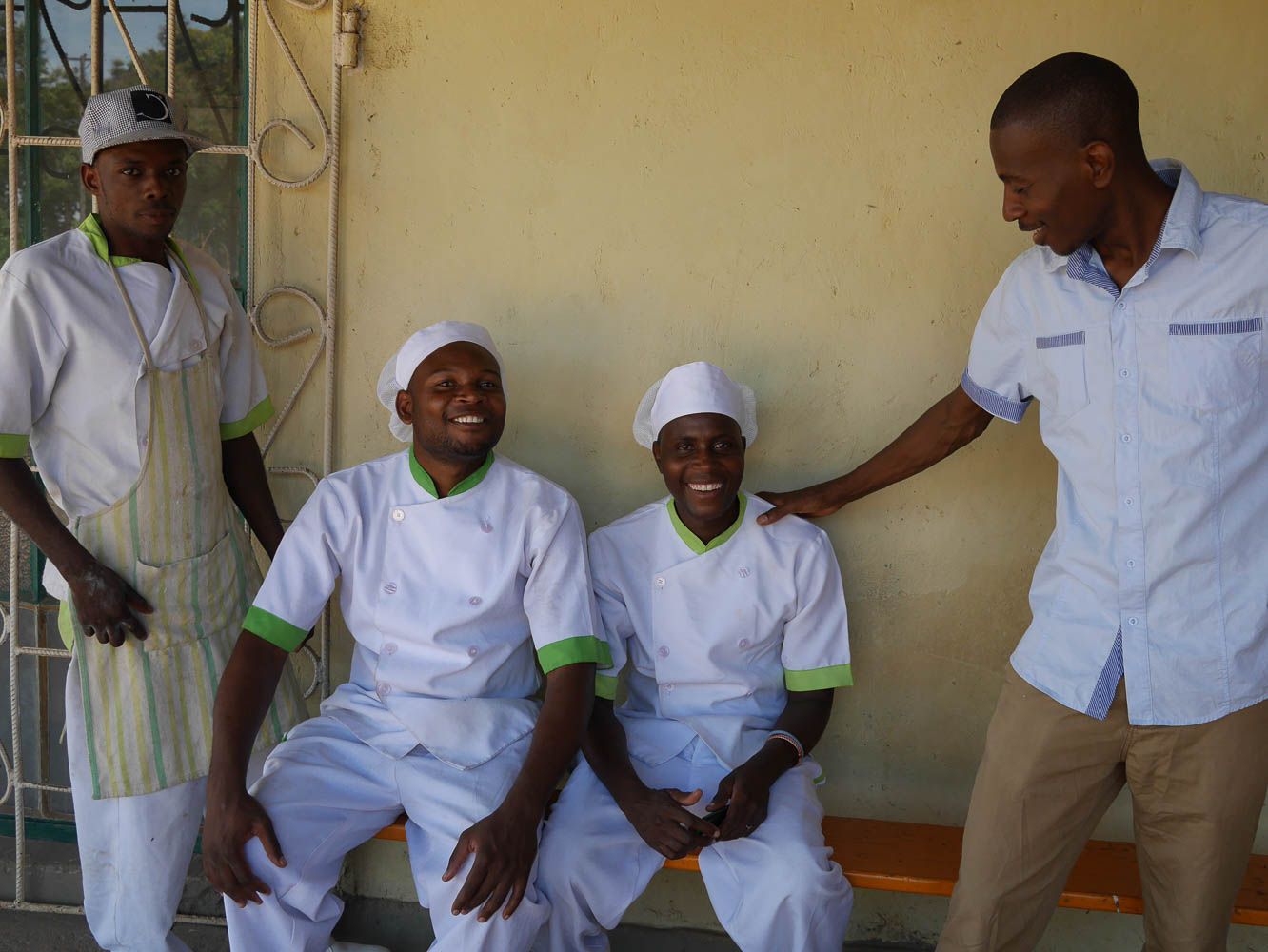Martin:
Some say it’s good thing if your partner retains an air of mystery about them. But spend six months on the road together and you’re bound to discover a few little secrets. I’d never suspected that Annemarie was a closet rally driver.
She’s always loved to drive and has certainly clocked up enough miles navigating an endless triangle between London, Devon and Nottingham over the years. But most of that distance she covered in her little red sports car. Since the beloved RX-8 went to the great crusher in the sky she’s been in mourning. And it seemed that driving dirt roads in Africa in a slow and heavy land rover wasn’t that much fun for my dedicated speed freak.
So I think it’s fair to say that so far I’ve been the one doing most of the driving on this trip. But in Katavi National Park in western Tanzania Annemarie discovered how much fun you could really have off-road.
“Right I’m driving now – you can see what it’s like to be a passenger,” she says.
“Are you sure,” I say. “It’s looking a bit rough.”
“I’m not having you telling everyone you drove all the way round Africa,” she says. “Just keep an eye out for monkeys, I want a photo.”
As it turned out the first part of the track wasn’t so bad after all. My demotion to simian spotter looked like it could last quite a while. We started off fairly slowly - so scanning the trees was easy. But before long the passing undergrowth began to blur. Annemarie was clearly beginning to enjoy herself.
“You’re rather close to the park speed limit,” I say.
We screeched to a sudden and rather noisy stop. “Oh look a big cow,” she says.
Some 20 metres away a large, and rather mean-looking water buffalo was staring malevolently at us. Clearly, unhappy that we’d careered into his domain.
“That’s not so much a cow as a water buffalo,” I say. “They’re considered to be among the most dangerous …”
“It’s coming this way,” she says. “Give me my camera.”
“It’s actually charging us,” I croaked as the distance between us rapidly disappeared. “Get us out of here”.
Maybe it was something about the look in the creature’s eye. But unusually, my driver chose not to argue that she didn’t need any lessons from me from how to drive. We shot forward up a rising track. The water buffalo in pursuit until he’d chased us out of his territory. Job done – he’d seen us off.
“Ha. He’s given up already. Too lazy to run uphill,” she says triumphantly. “Most dangerous animal in Africa my big fat toe.”
I don’t suppose nearly a tonne of water buffalo slamming into the car would have been a particularly pleasant experience. I was keen it wouldn’t be repeated.
“I think I may have seen some monkeys over there,” I say. “Would you like your camera?”
“Right. But I think I did rather well there don’t you?” she says. ”Yes, I shall now take some photographs. You may drive for a little bit.”
This was better. We were back to normal. Annemarie happily snapping pictures out the window and me negotiating a by now deteriorating road.
“Oh look a hippo,” she says. “Get closer.”
A little further down the road the track disappeared into a small pool where a large hippo was reclining in the mud. We would have to get very close indeed if we were to get past him and continue on our way.
“I’ll just ease forward gently,” I say. “Give him time to get used to us”
“Just don’t let him get away before I get my photo,” she says.
I engaged the differential lock and slipped into low gear in the prescribed manner. Slowly and carefully I drove to the edge of the muddy pool. Aware all the time that both I, and the hippo, needed to feel we had an escape route if the other get spooked. The hippo gradually drew himself from the pool and gracefully retreated a few metres as we passed by.
“Great photo,” she says. “Well done me.”
For the next hour or so we continued on our way. The track becoming wetter and muddier as we traced the edge of a floodplain. Our progress slowing as we were forced to negotiate ever-deeper water. Eventually we reached the river itself. It looked too deep to cross and the bank on the other side was slippery and steep. We would have to turn back.
“I want to drive now,” she says. “If you’re nice you can advise me how to get through all this yucky mud.”
What could possibly go wrong? I’d already driven through the mire on the way out and knew Hector was capable of tackling it. And Annemarie did need the chance to practice proper off-road driving.
It all started rather well. I was patient. She was attentive. We crept slowly through the mud. But with confidence the speed returned. And, as the road began to dry out, rather surprising amounts of it.
“Look Zebra. Oh and Warthogs,” she says. “And deer or are they antelope.” We flashed past. Animals appeared to be fleeing in all directions. “Why is everything running away?” she says.
“It may have something to do with our velocity.” I say
“Nonsense,” she says. “I think they are just camera shy.”
The skies were darkening so I admit I wasn’t exactly complaining about our rapid progress. I was just hanging on to the door handle a little harder.
“Keep an eye out for that water cow thing,” she says. “He’s not getting anywhere near me this time.”
But it wasn’t the water buffalo I was worried about. Something else was nagging at the back of my mind. Something I knew we ought to be aware of. Just then the muddy pond loomed into view.
“Here we go,” she says with delight. “I’ll give it some welly.”
“But don’t forget the …” I say, but it’s too late. We crash into the pool. An enormous wave of water shoots over the bonnet. Through the muddy spray a hippo explodes out of his bath. Do hippos have rocket motors? I didn’t think any creature, especially one as large as a hippo, was capable of moving that fast. A couple of hours earlier he and Hector clearly had an understanding based on mutual respect. Not anymore – he wasn’t intending hanging around in this pool again. Not that there would be any point seeing it was now largely empty of water!
“Whoops,” she says. “Honestly. I didn’t see him.”










